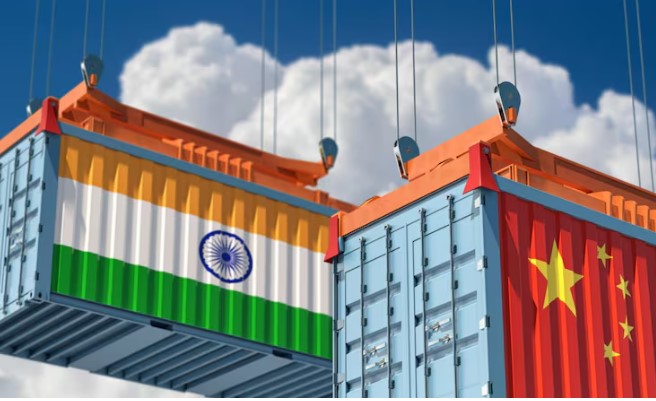Bharat requires more efficient and clear guidelines for approving Foreign Direct Investments (FDI) from China, as the current system of individual case reviews is slow and inefficient, according to NITI Aayog Vice Chairman Suman Bery.
He stressed on the importance of accelerating these approvals to take advantage of China’s surplus savings and technological advancements.
Bery further noted that Bharat currently scrutinises FDI proposals from China for security purposes, similar to the process used by the United States.
“What is needed, on the basis of experience, is a clearer set of guidelines because case-by-case review is slow and we do have an interest in getting investment from China because China is surplus in savings, it has got good technology,” he stated.
Earlier this week, the pre-budget Economic Survey also advocated for seeking FDI from Beijing to boost local manufacturing and tap into the export market. However, Bery highlighted the diplomatic difficulties between the two nations, necessitating a cautious approach.
At present, most FDI coming into Bharat falls under the automatic approval route, but investments from countries sharing land borders with India, including China, require mandatory government approval.
China ranks 22nd in terms of FDI equity inflow into Bharat. Its contribution is of only 0.37 per cent (USD 2.5 billion) from April 2000 to March 2024. Countries sharing land borders with Bharat include China, Bangladesh, Pakistan, Bhutan, Nepal, Myanmar, and Afghanistan.
The Indian and Chinese militaries have been locked in a standoff since May 2020, and a full resolution of the border dispute remains elusive. The ties between the two countries deteriorated significantly after the fierce clash in the Galwan Valley in June 2020, the most serious military conflict between the two sides in decades. Bharat has maintained that normal ties with China are contingent on peace in the border areas.
Following these tensions, Bharat has banned over 200 Chinese mobile apps such as TikTok, WeChat, and Alibaba’s UC Browser. The country has also rejected a major investment proposal from EV maker BYD. However, earlier this year, the Competition Commission of India (CCI) cleared JSW Group’s proposed acquisition of a 38 per cent stake in MG Motor India Pvt Ltd, a wholly-owned subsidiary of Shanghai-headquartered SAIC Motor.
The government is also considering further streamlining processes for the timely approval of visas for Chinese professionals and technicians whose expertise is needed by Indian industries to set up manufacturing capacities.
Certain Indian industry players have approached the government, stating that they face challenges in obtaining visas for Chinese professionals necessary for tasks such as setting up machinery in factories.
Despite receiving minimal FDI from China, bilateral trade between the two nations has grown significantly. China has emerged as Bharat’s largest trading partner, with USD 118.4 billion in two-way commerce in 2023-24, surpassing the US.
Bharat’s exports to China rose by 8.7 per cent to USD 16.67 billion in the last fiscal year, with significant growth in sectors such as iron ore, cotton yarn/fabrics/made-ups, handloom, spices, fruits and vegetables, and plastic and linoleum.

















